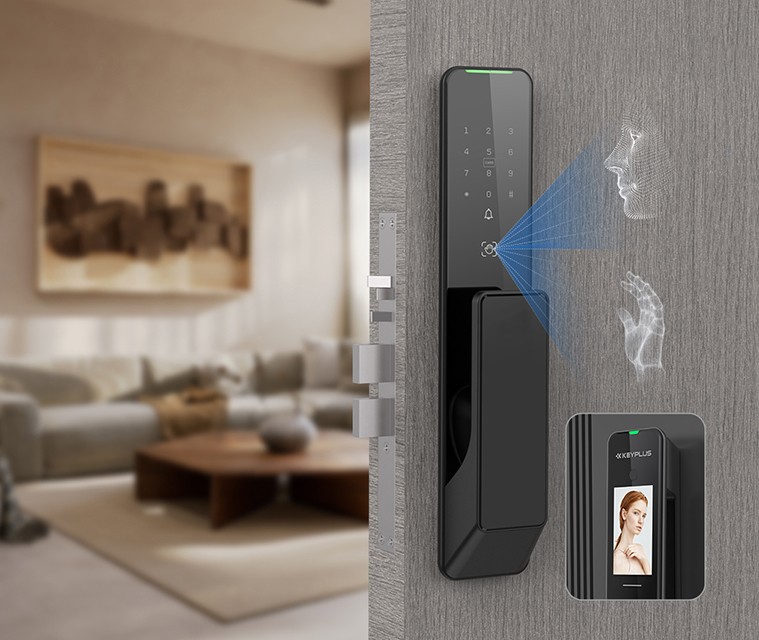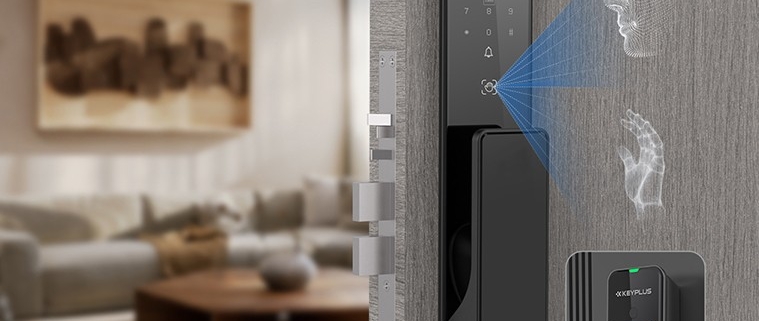How Long Do Electronic Locks Last?
Electronic locks have become increasingly popular in American homes due to their convenience, enhanced security features, and modern aesthetic. Unlike traditional mechanical locks, electronic locks rely on batteries, circuits, and digital components, which raises an important question: How long do electronic locks last?
The lifespan of an electronic lock depends on several factors, including build quality, usage frequency, environmental conditions, and maintenance. On average, a well-made electronic lock can last 5 to 10 years, with some high-end models functioning reliably for even longer. However, certain components (like batteries and keypads) may require more frequent replacement.
In this article, we’ll explore:
-
The average lifespan of electronic locks
-
Key factors that affect durability
-
Signs your electronic lock needs replacement
-
Tips to extend its lifespan
By the end, you’ll have a clear understanding of what to expect from your electronic lock and how to maximize its longevity.
1. The Average Lifespan of Electronic Locks
Most electronic locks are designed to last between 5 and 10 years, but this varies by brand, model, and usage. Here’s a general breakdown:
-
Battery Life: Most electronic locks use AA or AAA batteries, which last 6 months to 2 years, depending on usage. Smart locks with Wi-Fi or Bluetooth may drain batteries faster.
-
Keypad & Touchscreen: The keypad or touchscreen typically lasts 3 to 5 years before wear and tear become noticeable.
-
Motor & Internal Mechanisms: The locking mechanism itself can last 7 to 10 years if properly maintained.
-
Smart Locks (Wi-Fi/Bluetooth): These may have a shorter lifespan (around 5 to 7 years) due to more complex electronics.
Premium brands like Keyplus tend to last longer than budget models. Investing in a high-quality lock can save you money in the long run.
2. Factors That Affect How Long an Electronic Lock Lasts
Several factors influence the durability of an electronic lock:
A. Build Quality & Brand Reputation
Not all electronic locks are created equal. Established brands like Keyplus use higher-grade materials, ensuring better longevity. Cheap, no-name brands may fail within 2 to 3 years due to inferior components.
B. Frequency of Use
A front door lock used dozens of times daily will wear out faster than a rarely used back door lock. High-traffic entry points may need replacement sooner.
C. Weather & Environmental Conditions
Extreme temperatures, humidity, and direct sunlight can damage electronic components. If you live in:
-
Hot climates (Arizona, Texas): Heat can warp plastic and drain batteries faster.
-
Cold climates (Minnesota, Alaska): Freezing temperatures can cause mechanical parts to stiffen or malfunction.
-
Coastal areas (Florida, California): Saltwater air can corrode metal components.
Look for weather-resistant models with an IP rating if you live in harsh climates.
D. Power Source & Battery Life
-
Battery-Powered Locks: Require regular battery changes. Ignoring low-battery warnings can lead to lockouts.
-
Hardwired Locks: More reliable but require professional installation.
-
Smart Locks with Wi-Fi: Consume more power, requiring more frequent battery replacements.
E. Maintenance & Care
Like any device, electronic locks need occasional cleaning and inspection. Dust, dirt, and debris can interfere with sensors and keypads.

3. Signs Your Electronic Lock Needs Replacement
How do you know when it’s time to replace your electronic lock? Watch for these warning signs:
Battery Drains Too Quickly – If you’re replacing batteries every few weeks, the lock may be failing.
Keypad or Touchscreen Becomes Unresponsive – Fading buttons or delayed responses indicate wear.
Lock Jams or Fails to Engage – If the motor struggles to turn the deadbolt, internal mechanisms may be failing.
Visible Corrosion or Physical Damage – Rust, cracks, or loose parts suggest the lock is deteriorating.
Frequent Error Messages – Constant “low battery” or “system error” alerts may signal deeper issues.
If your lock is over 5 years old and showing these symptoms, it’s probably time for an upgrade.
4. How to Extend the Lifespan of Your Electronic Lock
Want to get the most out of your electronic lock? Follow these tips:
Use High-Quality Batteries – Cheap batteries can leak and damage internal circuits. Opt for lithium or name-brand alkaline batteries.
Keep the Lock Clean – Wipe the keypad and exterior with a dry cloth to prevent dirt buildup.
Avoid Harsh Chemicals – Cleaning sprays can damage sensitive components.
Install a Weatherproof Cover – If exposed to rain or sun, a protective shield can prolong its life.
Update Firmware (for Smart Locks) – Manufacturers release updates to fix bugs and improve performance.
Test the Lock Regularly – Ensure the mechanism operates smoothly to catch issues early.
5. When to Replace vs. Repair an Electronic Lock
Sometimes, a simple fix can extend your lock’s life:
-
Battery replacement
-
Keypad cleaning
-
Software reset
However, if the lock is old, malfunctioning frequently, or no longer supported by the manufacturer, replacement is the better option. Newer models offer better security, improved technology, and longer lifespans.
Final Thoughts: How Long Will Your Electronic Lock Last?
Most electronic locks last 5 to 10 years, but proper care and high-quality brands can push that even further. If your lock is showing signs of failure, don’t wait until it leaves you locked out—consider replacing it with a newer, more reliable model.
For the best performance:
Choose reputable brands.
Maintain it regularly (clean keypad, replace batteries)
Protect it from extreme weather
By following these guidelines, you can ensure your electronic lock remains secure and functional for years to come.









